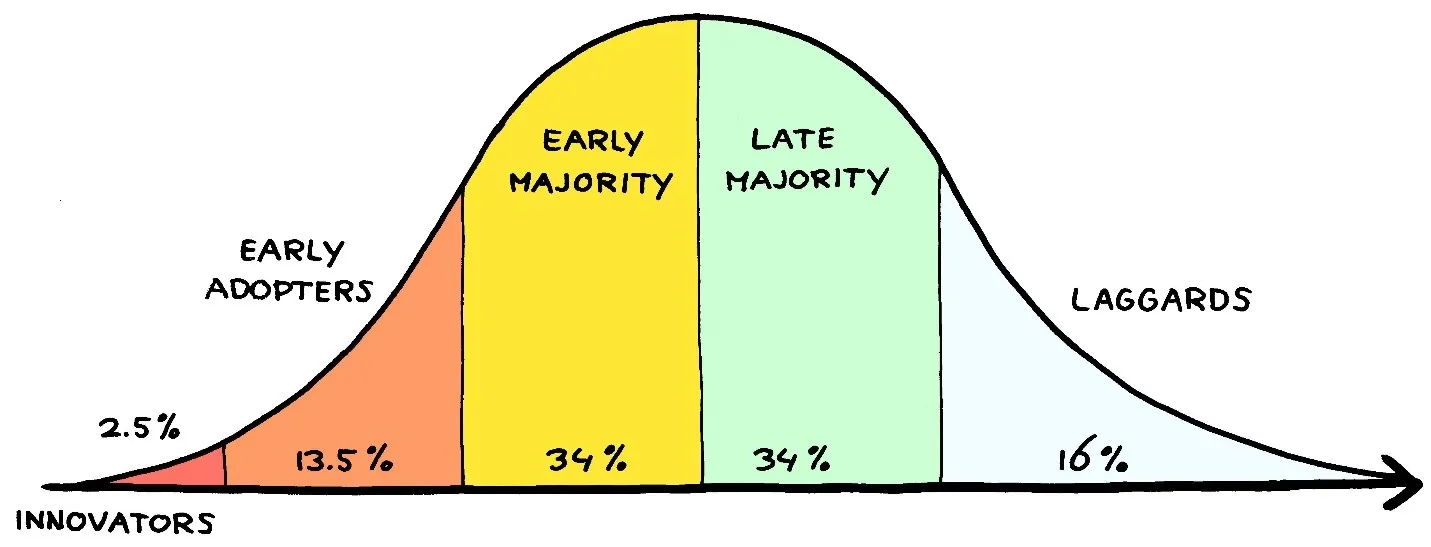There is plenty of talk about AI on the internet, but there doesn’t seem to be a lot of information about how to leverage it. With sales environments becoming more competitive and data-driven, AI is the next step to increasing revenues. It’s time to get serious about AI sales training and implementation.
Before you go investing all your money into a bunch of AI platforms, you need to understand how to prepare your teams to leverage it to its full potential. AI is just one piece of a more holistic digital transformation. By integrating AI sales training, you empower your team to tailor outreach, predict customer needs, and build more meaningful relationships. If you don’t do proper training, then you can’t really expect to see faster onboarding, improved conversion rates, or increased revenue.
This article will help you understand the AI tools available for sales teams and how you can leverage them to your advantage. We are here to help you navigate the evolving world of sales enablement and ensure your team is ready to close deals smarter and faster.
Upgrading Sales Technology and Processes
Think about how quickly things change in business. Oftentimes if you’re not an early adopter, you’re a laggard before you know it. Traditional sales training is often generic, static, and slow to adapt to market shifts. As competition increases and buyer expectations evolve, relying solely on conventional methods puts your team at a disadvantage. Implementing a whole new technology into your existing sales processes can take time. The key is to get started and adapt and change depending on the unique needs of your team.

Training sales teams how to leverage AI will inject precision and personalization into every interaction. Research shows that sales teams using AI-driven solutions see up to a 30% reduction in ramp-up time for new hires and a significant boost in meeting revenue targets. Modern sales leaders understand that the real differentiator lies in how effectively your team can learn and adapt in real time.
If done well, here are some outcomes you can expect from effective AI sales training:
- Accelerate Pipeline Velocity: AI tools streamline lead qualification, automate follow-ups, and prioritize high-intent prospects. This helps shorten sales cycles and boost close rates.
- Enhance Rep Productivity: AI offloads manual tasks like data entry, email drafting, and CRM updates, freeing reps to focus on high-value activities like building relationships and closing deals.
- Enable Real-Time Coaching & Insights: With AI-driven analytics and conversation intelligence, sales managers can deliver targeted coaching at scale and adjust strategies based on real-time performance data.
These benefits highlight why many leading organizations are moving towards comprehensive AI sales training to ensure they are structured for scale.
How to Leverage AI in Sales
Whenever you implement AI, it should be part of a larger digital transformation strategy. Its purpose should be to get everyone on the same page to produce consistent results. It’s all about strategic integrations that enhance what your reps already do best.
Related Article: AI Sales Agent: 5 Tips for Success
Implementing AI into your sales team isn’t about a wholesale overhaul—it’s about strategic integration that enhances what your reps already do best. By embedding AI into key areas of the sales process, you can drive smarter outreach, improve skill development, and equip your team with real-time insights that lead to better outcomes. In the sections that follow, we’ll walk through practical ways to implement AI tools across a few different channels.
1. Streamline Email Outreach
Those of us in sales know that emails are still a powerful tool for engaging with prospects and clients. However, the one-size-fits-all approach of past decades isn’t cutting it anymore. Sales teams need dynamic, data-backed support to craft emails that speak directly to a prospect’s needs.
Personalize at Scale
AI tools can analyze CRM data, past interactions, buyer personas, and industry trends to help craft emails that feel custom-written, without requiring reps to start from scratch every time.
- Use AI to automatically insert personalized details (e.g., company name, industry challenges, recent news).
- Tailor messaging based on behavioral signals like page visits, content downloads, or previous email opens.
- Segment audiences with precision so every prospect gets relevant content at the right time.
Example toolset: Apollo, Lemlist, Instantly, Amplemarket, and Reply all offer AI-powered personalization features.
Related Article: Top Sales AI Tools in 2025
Generate and Optimize Messaging
AI copy assistants (like GPT-powered tools) can help draft cold outreach, follow-ups, and re-engagement emails that match your brand’s tone while optimizing for engagement. McKinsey found that AI-enhanced marketing and sales workflows can increase conversion rates by 10–20%.
- Input a few key details (target persona, offer, CTA) and let AI generate a complete draft.
- A/B test subject lines, CTAs, and formats to identify what drives the highest response rates.
- Use natural language processing (NLP) to assess and improve tone, clarity, and conciseness.
Automate Timely Follow-Ups
Most sales are lost due to poor follow-up. AI helps reps maintain consistency by triggering automated sequences based on recipient behavior and CRM signals.
- Set rules to trigger follow-ups when a prospect opens an email, clicks a link, or goes cold.
- Adjust timing and content dynamically based on prospect engagement.
- Reduce manual tracking—AI keeps your team focused on high-value conversations.
Related Article: AI for Sales Prospecting: Working Smarter, not Harder
2. Use Simulations as Practice
One of the most impactful facets of ai sales training is the use of AI-driven simulations. These platforms create realistic, risk-free environments where sales reps can practice handling objections, closing deals, and managing tough customer conversations. In training simulations, every missed opportunity is a learning moment without jeopardizing real revenue.
AI-powered simulations provide instant, actionable feedback. This allows sales reps to iterate on their approach continuously. For example, tools like Second Nature or Quantified simulate varied buyer personas and scenarios, ensuring that every session hones in on essential skills like active listening, adaptive questioning, and persuasive storytelling. This preparation translates directly to improved sales performance in the field.
Here’s why you should consider using AI simulations as part of your training regimen:
- Safe Environment: Reps can experiment with different approaches without real-world repercussions.
- Immediate Feedback: Instant, AI-generated insights help identify strengths and areas for improvement.
- Customized Scenarios: Simulations can be configured for various industries, product types, and customer profiles.
These simulation tools are a cornerstone of advanced ai sales training that prepares your team for every eventuality and instills a culture of continuous improvement.
3. Enhance your CRM
Effective ai sales training is about equipping your team with the right tools. One such tool is Agentforce, a Salesforce innovation built to supercharge sales enablement through AI. Agentforce seamlessly integrates with your existing CRM to provide real-time coaching, intelligent prospecting, and data-driven insights that transform sales conversations.
Related Article: The Ultimate Guide to Agentforce (Salesforce AI Agents 101)
Agentforce is a comprehensive solution designed to align perfectly with your sales enablement strategy. It gathers insights from Sales Cloud and Data Cloud, helping your team understand customer behavior, manage follow-ups, and close deals more effectively. By leveraging Agentforce, your team will get actionable prompts during sales calls, enabling them to adapt on the fly and interact with customers more effectively.
A few of the benefits of Agentforce include:
- Intelligent Prospecting: Identify and prioritize leads based on real-time data, ensuring high-potential targets aren’t missed.
- Real-Time Coaching: Receive on-screen recommendations during customer interactions to improve outcomes.
- Integrated Analytics: Harness the power of predictive analytics to fine-tune your sales strategy continuously.
When paired with a robust ai sales training program, Agentforce empowers your team to operate at peak performance, boosting both individual success and overall sales effectiveness.
Related Article: Agentforce FAQs: Everything You Want to Ask About Agents
4. Gather Better Data and Insights
Data is the backbone of modern sales operations, and the adoption of ai sales training is revolutionizing how we report and analyze performance metrics. Traditional reporting methods often fall short of providing the detailed insights needed for quick decision-making. AI-enhanced reporting tools, however, take analysis to the next level by offering real-time data and predictive insights.
With AI-driven reporting, sales leaders can monitor key performance indicators (KPIs) such as conversion rates, quota attainment, and pipeline health in real time. These insights allow for swift adjustments to strategies and tactics, ensuring that your team always operates at peak effectiveness. Advanced dashboards and customized visualizations make complex data sets accessible and actionable for even the busiest sales managers.
Key advantages for implementing AI into your reporting:
- Real-Time Analytics: Immediate access to performance data helps identify trends and resolve issues swiftly.
- Predictive Insights: AI models forecast future sales trends, helping set realistic targets and prepare for market shifts.
- Customizable Dashboards: Tailored views ensure that each stakeholder sees the data most relevant to their role.
Integrating such comprehensive reporting into your ai sales training framework not only drives operational efficiency but also positions your team for sustained growth.
Overcoming Challenges to AI Sales Training
Implementing AI sales training comes with challenges that range from cultural resistance to technical debt. Many sales leaders recognize AI’s potential but struggle to build a clear roadmap to adoption. According to Salesforce’s State of Sales report, 61% of sales reps say their role has changed permanently since the rise of AI, yet only 21% report receiving formal AI training. This disconnect creates confusion, hesitation, and underutilized tech stacks.
Common Barriers to Adoption
Sales teams typically face three major roadblocks:
Lack of AI literacy: According to Gartner, 64% of sales leaders say their teams lack the skills to effectively use AI. Without foundational understanding, reps are either overwhelmed or skeptical of AI tools.
Tool overload and poor integration: HubSpot reports that sales reps use an average of 10 tools per day, and only 27% strongly agree their tools are well-integrated. Adding AI into a disjointed ecosystem can create friction rather than efficiency.
Change management fatigue: A Forrester survey found 53% of sales leaders worry about change fatigue among their teams, particularly when adopting new technologies that aren’t clearly linked to performance outcomes.
Strategies to Overcome These Challenges
The key to overcoming resistance is to position AI as an enabler—not a threat. Sales enablement must evolve into AI enablement, supported by education, pilot programs, and quick wins.
Start with hands-on training: Instead of relying on generic webinars, create sandbox environments or simulations where reps can see real use cases. Learning by doing is critical. Harvard Business Review found that reps are 48% more likely to adopt tools when trained with role-specific simulations.
Prioritize ease-of-use and UX: Tools like Agentforce are built natively on platforms reps already use (like Salesforce), reducing friction. According to Salesforce, reps spend 72% of their week on non-selling tasks. AI should shrink that number, not add to it.
Demonstrate ROI early: Pilot AI with a small, agile team and track KPIs. McKinsey notes that companies using AI in sales report up to a 15% increase in revenue productivity within the first year. Nothing drives buy-in like proven results.
Transitioning to a more AI-driven sales training framework can encounter resistance from within, especially when employees are accustomed to legacy practices. However, effective change management is key to successful adoption.
Building buy-in starts with leadership. Sales managers and team leads should champion the change by participating in training, sharing success stories, and consistently highlighting how AI is making a tangible difference in daily operations. When leaders model behavior and communicate the benefits, the transition becomes a shared journey rather than an imposed mandate.
By addressing concerns proactively, you ensure that your AI sales training initiative gains the necessary momentum to transform your sales organization from within.
Take the First Step Toward AI Sales Enablement
AI is the next evolution of high-performance selling. But like any transformation, success requires more than just tools. It takes strategy, training, and a trusted partner who understands the realities of sales technology implementation. At Gerent, we specialize in helping sales organizations build and implement tools like Agentforce and change management strategies that drive real results.
Whether you’re just starting to explore AI or you’re struggling to activate value from existing tools, we can meet you where you are. Connect with one of our experts today and start transforming your sales team for the future.










